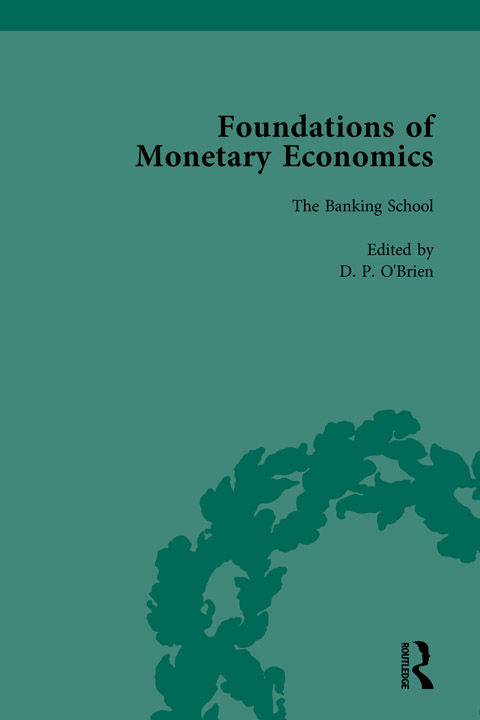
Foundations of Monetary Economics
Edited by D. P. O’Brien
- Published: 2016
- DOI: 10.4324/9781851961900
- Set ISBN: 9781851961900
Set Contents
Monetary Non-Conformists
- Edited by
- D. P. O’Brien
Volume Contents
-
Front Matter
-
Introduction By D. P. O’Brien
-
1816 Thoughts on the Present D istresses
By Thomas Attwood
-
Prelims
-
The Remedy, &c. &c.
-
-
1817 Observations Concerning the Distress of the Country
By Matthias Attwood
-
Observations concerning the Distress of the Country: January, 1816
-
Observations concerning the Distress of the Country: January, 1817
-
-
1820 Essays on Money, Exchanges, and Political Economy
By Henry James
-
Chapter III
-
Chapter VII
-
-
1829 Observations on Paper Money, Banking, and Overtrading
By Henry Parnell
-
Section VI. On Paper Money
-
Section VIII. On Joint Stock Companies
-
Section X. The Banking System of England
-
-
51832 An Analysis and History of the Currency Question By Thomas Joplin
-
61844 Currency Reform: Improvement not Depreciation By Thomas Joplin
-
71854 On the Laws of the Currency, as exemplified in the Circulation of Country Bank Notes in England since 1844 By J. W. Gilbart
-
Back Matter